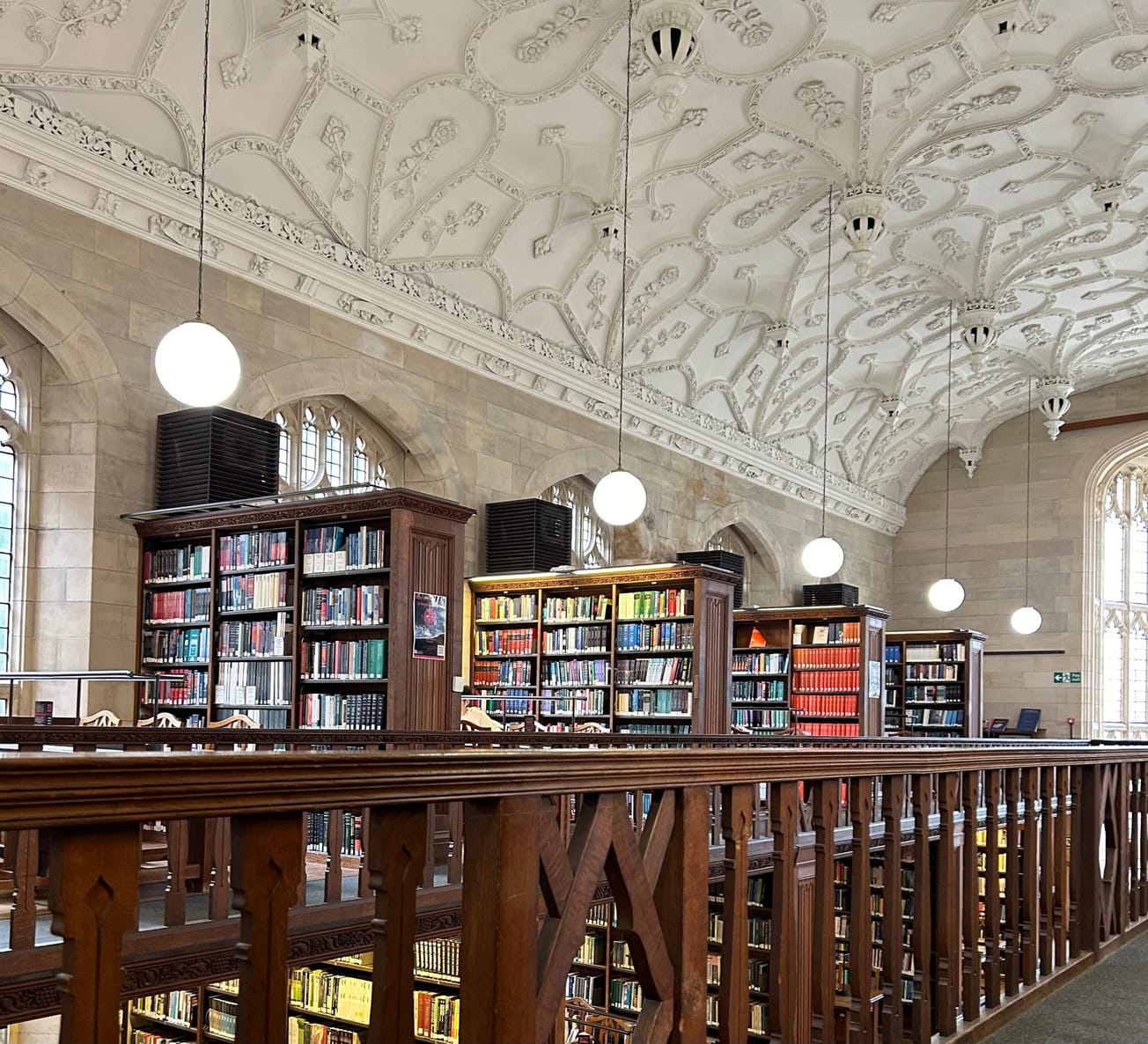By Edward Wallace, First Year, Politics and Social Policy
As the world marks 80 years since the liberation of Auschwitz, the darkest chapter of human history reminds us of the light that flickered even in those harrowing times- the Kindertransport.
As the spectre of the Holocaust loomed over Europe, nearly 10,000 Jewish children were transported to the United Kingdom, escaping Nazi persecution and likely death. Among those in the group were my grandparents, who, in 1939, made the heart-wrenching decision to flee the horrors of Dachau. They knew, with a gut-wrenching certainty, that their journey would not only sever the ties to their homeland but also mark the last time they would ever see their families. Their story – a tale of survival, adaptation, and resilience – offers lessons that resonate deeply today as we grapple with another humanitarian crisis: the plight of Ukrainian refugees.
My late grandfather, Frank Wallace, was just a boy when he arrived in Britain. Back then, his surname was “Wallach,” but, like so many others, he changed it to better assimilate into British society. The Britain he came to was not free of prejudice – antisemitism simmered beneath the surface – but it was also a land of opportunity. Frank seized that opportunity with both hands. Years later, he would become a pioneer in diesel engine turbocharging research, contributing to advancements that reshaped industries. Today, his legacy lives on through the Frank Wallace Scholarship for Engineering students at the University of Bath, a testament to the lasting impact of those who once arrived here as frightened refugees.
The story of my grandparents is a stark reminder that refugees are not a burden but an untapped source of potential, ingenuity, and resilience.
However, for every success story, there are countless others who face immense challenges, both then and now. Reflecting on the Kindertransport and the experiences of today’s Ukrainian refugees reveals both the progress we have made and the ways we have fallen short.
In 1939, the children of the Kindertransport embarked on journeys marked by uncertainty and fear, often travelling on rickety trains with few possessions. They were welcomed by ordinary British families who opened their homes, offering not just shelter but also a sense of hope. These acts of kindness were deeply personal – community-led efforts that arose despite the political reluctance of the time.
Today’s Ukrainian refugees, fleeing war-torn regions in search of safety, find themselves navigating a world that looks vastly different from the one Kindertransport children knew. The damp, rickety train carriages of the 1930s have given way to modern trains, planes, and buses, and international support systems have evolved significantly. Born from the ashes of World War II, organisations like the United Nations now play a central role in coordinating aid, while governments have created pathways for temporary visas and housing. In Britain, over 200,000 Ukrainians have been welcomed into supportive communities, using social media and technology to rebuild their lives – from finding jobs to securing homes – with a speed unimaginable in my grandparents’ time.
But even as progress lights the way, significant challenges cast unignorable shadows. Refugees today face an intricate maze of bureaucracy, where complex visa systems, restrictive quotas, and mounting public scepticism turn the journey into a perilous obstacle course. In Britain, a nation with a proud history of refuge, delays in processing Ukrainian visa applications and a lack of long-term planning have drawn sharp criticism. For all the advancements in transportation and technology, the promise of sanctuary is often bogged down by red tape, leaving those fleeing war caught in a desperate limbo.
Perhaps the most troubling parallel between past and present is the persistence of antisemitism. During my grandparents’ time, they fled an explicitly antisemitic regime bent on their annihilation. While the Holocaust stands as the most horrific manifestation of this hatred, it did not mark its end. In recent years, antisemitism has not only endured but surged.
A recent report reveals that global antisemitic incidents have increased by 340% over the past two years, exacerbated by the polarising impact of the Israel-Palestine conflict. Social media platforms have become a breeding ground for vitriol, amplifying age-old stereotypes and conspiracy theories to a global audience. Unlike other forms of discrimination, which have seen some progress in public awareness and policy, antisemitism remains a stubborn exception. It is not just confined to the fringes of society – it appears in political discourse, in academic institutions, and even in popular culture.
This is not to say that other forms of prejudice no longer exist – far from it. Racism, Islamophobia, and xenophobia all continue to harm countless lives. But there is a peculiar normalisation of antisemitism, as if it exists in a category of its own, often excused or justified by geopolitical events. This cannot continue. History teaches us that hatred left unchecked leads to catastrophe. The atrocities which came to an end 80 years ago exemplify this.
If there is one lesson we must take from the Kindertransport, it is this: offering refuge is not just an act of charity but an investment in humanity. The children saved in 1939 grew up to become scientists, artists, teachers, and leaders. They rebuilt their lives and, in doing so, enriched the communities that welcomed them.
As we navigate the crises of today, from Ukraine to Syria to Afghanistan, we must look to the past for guidance. The Kindertransport teaches us that compassion, when paired with action, can change the course of history.








